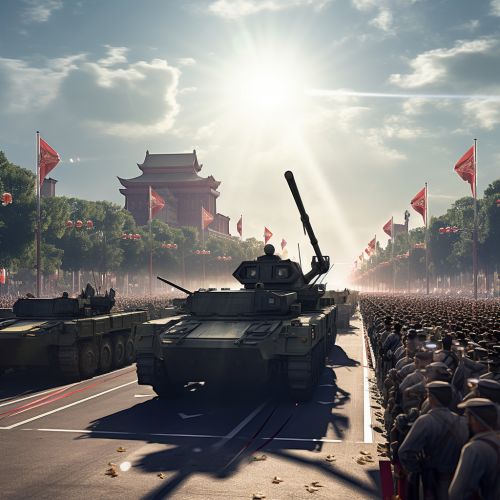Militarism
Definition and Concept
Militarism is a political orientation that emphasizes the role of military power in the conduct of state affairs. It is characterized by the belief that a nation's strength is directly correlated with its military might, and that the use of force is a legitimate and effective means to achieve political and social goals. Militarism often involves the glorification of the military and a readiness to resort to armed conflict.
Historical Context
Militarism has been a significant factor in human history, shaping the course of civilizations, empires, and nations. It has been a driving force behind many of the world's major conflicts, including the World War I and II, the Cold War, and numerous regional wars and conflicts.
Theories and Perspectives
Several theories have been proposed to explain the emergence and persistence of militarism. Realist theorists argue that militarism is a natural outcome of the anarchic international system, where states must rely on their own power to ensure their survival. Marxist theorists, on the other hand, view militarism as a product of capitalist societies, where the military-industrial complex serves the interests of the ruling class.
Militarism and Society
Militarism has profound impacts on society. It can shape social values, norms, and institutions, promoting a culture of violence and aggression. Militarism can also divert resources away from social needs, such as education and healthcare, towards military spending. However, it can also foster technological innovation and economic growth through the military–industrial complex.
Militarism in the Modern World
In the modern world, militarism continues to be a significant force. It is evident in the ongoing arms races, the proliferation of nuclear weapons, and the frequent resort to military intervention by powerful states. However, there is also growing resistance to militarism, with movements advocating for peace, disarmament, and non-violent conflict resolution.


